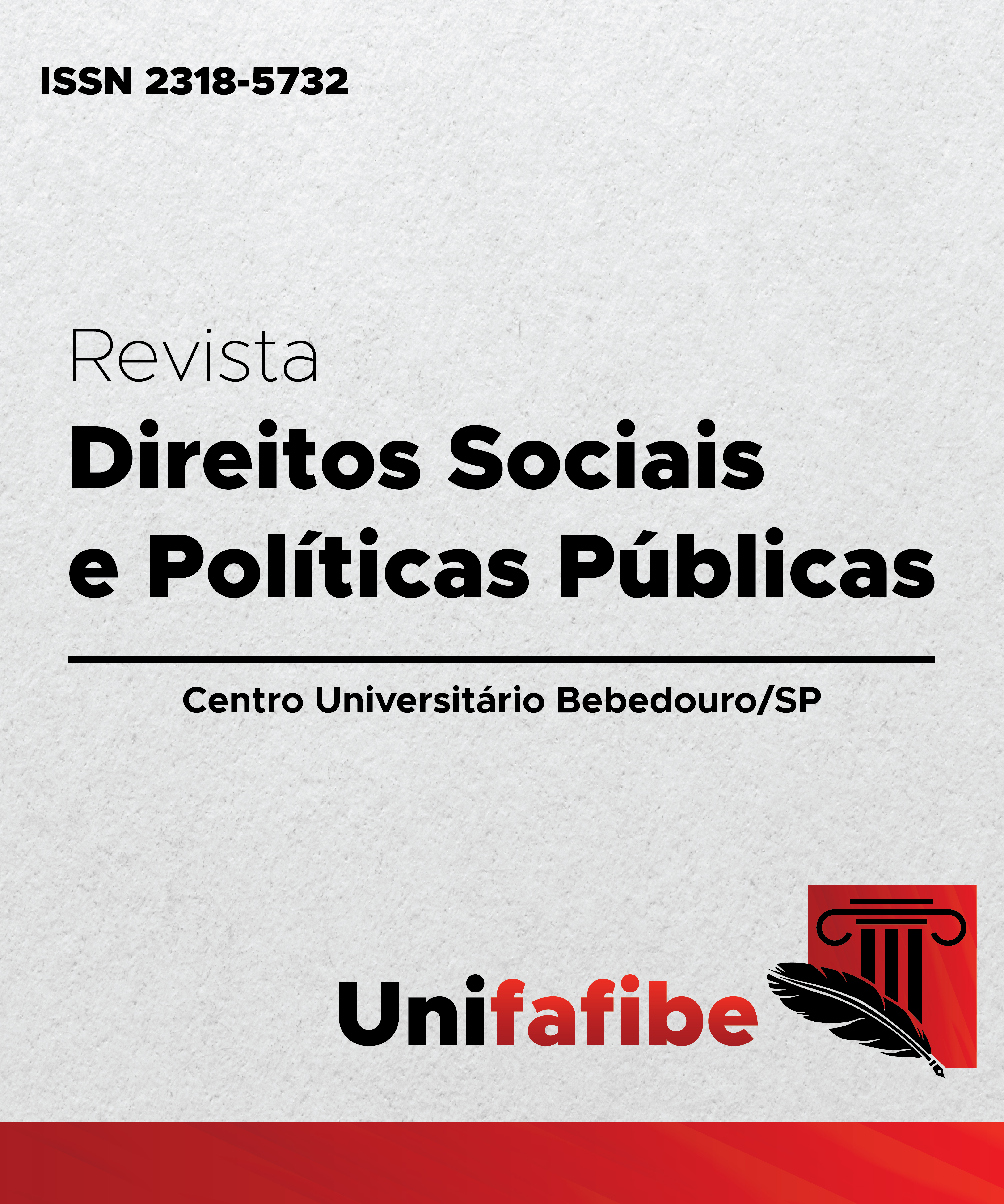GENOCÍDIO E NECROPOLÍTICA
A CRISE HUMANITÁRIA O FRACASSO DAS POLÍTICAS PÚBLICAS E OS DIREITOS DOS POVOS INDÍGENAS NO BRASIL
DOI:
https://doi.org/10.25245/rdspp.v13i2.1607Palavras-chave:
Biopoder, Indígenas, Necropolítica.Resumo
Esta pesquisa tem como objetivo analisar a crise enfrentada pelos povos indígenas brasileiros, com ênfase nos recentes relatos de 2023 sobre mais de 570 mortes infantis nos últimos cinco anos nas aldeias Ianomâmis, causadas por malária e outras doenças evitáveis, agravadas pela desnutrição. O problema central da pesquisa é: em que medida os direitos fundamentais dos indígenas, garantidos pela Constituição Federal, têm sido sistematicamente negados, resultando em um massacre silencioso, progressivo e eficaz, configurando-se como necropolítica no cenário brasileiro? A hipótese inicial, com base em dados e na bibliografia consultada, é que os indígenas brasileiros estão sendo submetidos a uma forma de genocídio com viés necropolítica. Para atingir o objetivo geral, a pesquisa tem os seguintes objetivos específicos: a) analisar, com base em estudos existentes, as mortes de indígenas brasileiros, com foco nos Povos Ianomamis; b) avaliar as políticas públicas e as respostas institucionais que falharam em mitigar a crise e as consequências das práticas necropolíticas na vida e saúde dos povos indígenas e suas implicações para a justiça social e os direitos humanos. Quanto aos aspectos metodológicos o trabalho de cunho teórico observou como método de abordagem o hipotético-dedutivo, por meio do procedimento de pesquisa bibliográfica e documental com coleta de dados indiretos e interpretação jurídica com viés sociológico.
Referências
BRASIL. Constituição da República Federativa do Brasil de 1988. Disponível em: <http://www.planalto.gov.br/ccivil_03/constituicao/constituicaocompilado.htm>. Acesso em: 02 jan. 2023.
CAVALCANTE, Thiago Leandro Vieira. Colonialismo, território e territorialidade: a luta pela terra dos Guarani e Kaiowá em Mato Grosso do Sul. Tese (Doutorado em História) – Faculdade de Ciências e Letras de Assis, Universidade Estadual Paulista, Assis, 2013. Disponível em: <https://repositorio.unesp.br/bitstream/handle/11449/106620/cavalcante_tlv_dr_assis.pdf?sequence=1>. Acesso em: 18 fev. 2023.
DECLARAÇÃO UNIVERSAL DOS DIREITOS HUMANOS. Disponível em: <https://www.unicef.org/brazil/declaracao-universal-dos-direitos-humanos>. Acesso em: 18 fev. 2023.
DECLARAÇÃO DOS DIREITOS DOS POVOS INDÍGENAS. Disponível em: <https://www.unicef.org/brazil/declaracao-universal-dos-direitos-humanos>. Acesso em: 18 fev. 2023.
DUSSEL, Enrique. 1492: o encobrimento do outro; a origem do mito da modernidade: conferências de Frankfurt. Tradução: Jaime A. Clasen. Petrópolis, RJ: Vozes, 1993. Disponível em: <http://www.mel.unir.br/uploads/56565656/arquivos/1492_O_encobremento_do_outro_de_ENRIQUE_DUSSEL_441400838.pdf>. Acesso em: 18 fev. 2023.
ESTATUTO DO ÍNDIO. Disponível em: <http://www.planalto.gov.br/ccivil_03/leis/l6001.htm>. Acesso em: 19 fev. 2023.
FOLHA DE SÃO PAULO. Garimpeiros continuam invasão de terra Yanomami e demonstram resistência. Disponível em: <https://www1.folha.uol.com.br/cotidiano/2023/02/garimpeiros-continuam-invasao-de-terra-yanomami-e-demonstram-resistencia.shtml>. Acesso em: 10 fev. 2023.
GUIMARÃES, Hellen. Pesquisador da Fiocruz explica como crise humanitária se originou no território Yanomami. Agência Fiocruz de Notícias, 07 fev. 2023. Disponível em: <https://portal.fiocruz.br/noticia/pesquisador-da-fiocruz-explica-como-crise-humanitaria-se-originou-no-territorio-yanomami>. Acesso em: 17 fev. 2023.
LEI 2889, DE 1º DE OUTUBRO DE 1956. Define e pune o genocídio. Disponível em: <http://www.planalto.gov.br/ccivil_03/leis/l2889.htm>. Acesso em: 18 fev. 2023.
MBEMBE, Achille. Necropolítica: biopoder, soberania, estado de exceção, política de morte. São Paulo: n-1 edições, 2018.
OLIVEIRA, Cristiane de. Povos indígenas: conheça os direitos previstos na Constituição. Disponível em: <https://agenciabrasil.ebc.com.br/direitos-humanos/noticia/2017-04/povos-indigenas-conheca-os-direitos-previstos-na-constituicao>. Acesso em: 17 fev. 2023.
OLIVEIRA, José Carlos. Terra Yanomami é palco de “tragédia humanitária”, dizem especialistas. Agência Câmara de Notícias, 14 jul. 2022. Disponível em: <https://www.camara.leg.br/noticias/898328-terra-yanomami-e-palco-de-tragedia-humanitaria-dizem-especialistas/>. Acesso em: 17 fev. 2023.
PL 2865/2019. Disponível em: <https://www25.senado.leg.br/web/atividade/materias/-/materia/136750>. Acesso em: 18 fev. 2023.
RADICA, Carolina. Relatório de Estágio Supervisionado apresentado ao curso de Gestão do Agronegócio da Universidade de Brasília, 2011. Disponível em: <https://bdm.unb.br/bitstream/10483/3859/1/2011_CarolinaRadica.pdf>. Acesso em: 18 fev. 2023.
SANTOS, Boaventura de Souza; CHAUI, Marilena. Direitos Humanos, democracia e desenvolvimento. São Paulo: Editora Cortez, 2013.
SOUZA, Oswaldo Braga de. O que você precisa saber para entender a crise na terra indígena Yanomami. 31 jan. 2023. Disponível em: <https://www.socioambiental.org/noticias-socioambientais/o-que-voce-precisa-saber-para-entender-crise-na-terra-indigena-yanomami>. Acesso em: 17 fev. 2023.
Tonél, R., Filho, M. F., Aquino, A., & Sturza, J. M. (2019). EUROCENTRISMO E PENSAMENTO DESCOLONIAL NA AMÉRICA LATINA: DOS CASOS DA BIOPIRATARIA E DO SUICÍDIO INDÍGENA. Salão Do Conhecimento, 5(5). Recuperado de https://www.publicacoeseventos.unijui.edu.br/index.php/salaoconhecimento/article/view/12710
VEJA. A crise Yanomami e as novas ações do governo Lula. Disponível em: <https://veja.abril.com.br/coluna/matheus-leitao/a-crise-yanomami-e-as-novas-acoes-do-governo-lula/>. Acesso em: 17 fev. 2023.




















